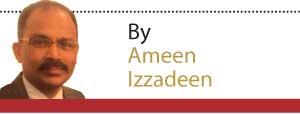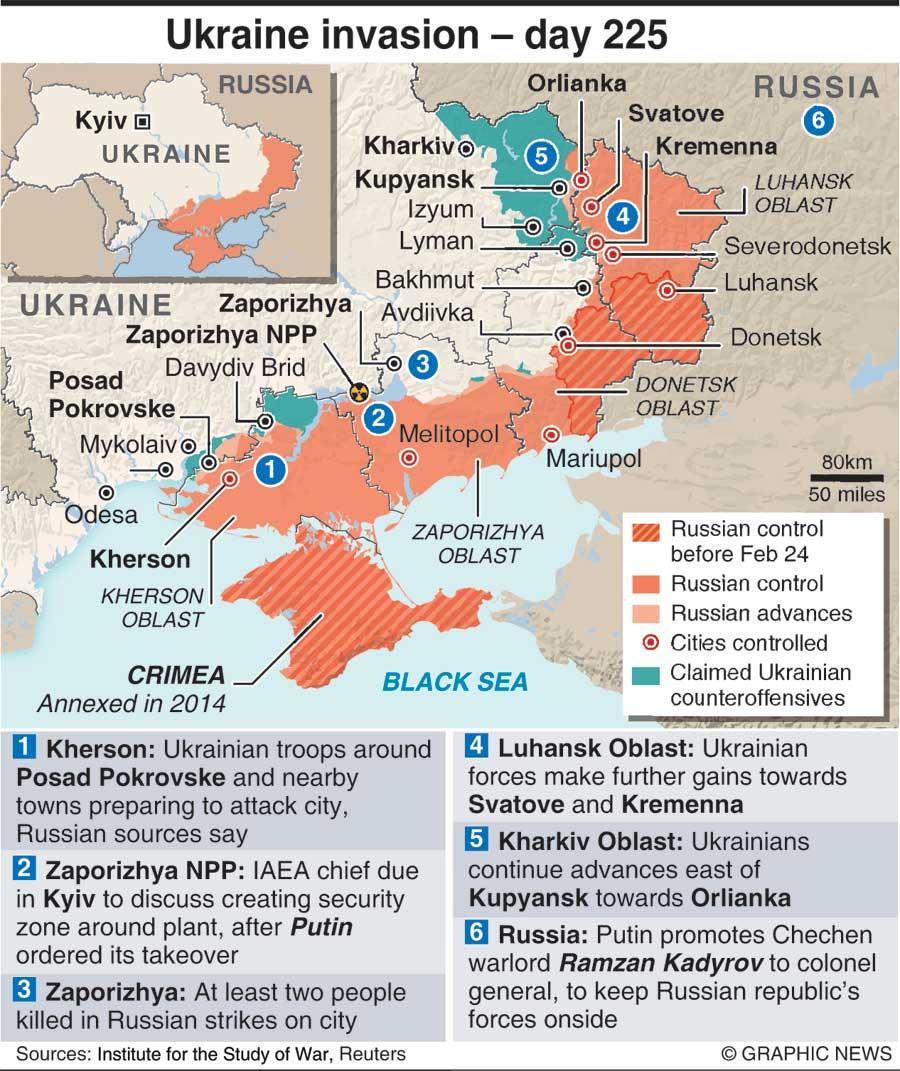07 Oct 2022 - {{hitsCtrl.values.hits}}
So Ukraine is winning the war against mighty Russia, an enemy which is armed to the teeth with earth-destroying nuclear weapons. It appears to be so if we are to believe western media narrations.
narrations.
With Russia Today and Sputnik, channels that regularly exposed the western media’s news distortion, off the air since the beginning of the Ukraine war in February, the world is bombarded with one-sided war reporting. Call it propaganda or hypocrisy. Media freedom, which the West has denied to Russia’s news outlets, however, forms an essential part of the West’s list of conditions for developing nations to qualify for economic assistance.
Article 19 of the Universal Declaration of Human Rights says: Everyone has the right to freedom of opinion and expression; this right includes the freedom to hold opinions without interference and to seek, receive and impart information and ideas through any media and regardless of frontiers. The Article 19 phrase “regardless of frontiers” means freedom of expression is undeniably transnational. Any attempt to muzzle the transmission of views and opinions from Russia or Russia-funded media outlets, even if they are one-sided baloney, is a blatant violation of Article 19 and, therefore, must be condemned.
According to what we see or read in the western media, Russia is facing defeat after defeat in Ukraine and the Ukrainian troops are regaining territory lost to the Russians in the very regions which Russia annexed recently after referendums. Russia’s President Vladimir Putin’s mobilisation call has backfired with young Russians catching the next available flight and leaving the country in their thousands.
But what we do not see in the western media is that the Ukrainian Army has also suffered huge casualties and lost irreplaceable military hardware. The Russians are withdrawing from the territory they have captured, but not in a manner a defeated army would do. They are doing it in an orderly manner, indicating it is only a tactical manoeuvre. Moreover, Russia’s Defence Ministry has said it is satisfied with the mobilisation drive, though, in the Western media, videos of Russians protesting against the draft are overplayed.
By incorporating the eastern Ukrainian regions --- Donetsk, Luhansk, Kherson, and Zaporizhzhia -- into mainland Russia, Putin has drawn a red line, warning Ukraine that any attack on these regions will be regarded as an attack on Russia and he would use “all the powers and means at our disposal” to defend Russia. Most analysts interpret Putin’s statement as a threat to use nuclear weapons if the need arises.
That apart, Putin is no pushover or an ignoramus on matters of war. He successfully ended Russia’s separatist wars in Chechnya and Dagestan in the 1990s. In 2008, he invaded Georgia, which just as Ukraine wanted to join NATO, and carved out from Georgia’s territory two pro-Russia independent states –Abkhazia and South Ossetia.
Russia is the world’s second-largest military force, after the United States. Russia has the world’s largest tank fleet, the second largest aircraft fleet behind the US, and the third largest submarine fleet behind the US and China, according to Business Insider. Russia’s military spending has increased by almost a third since 2008 and is expected to grow 44% more in the next three years. Russia has also demonstrated its ability to project force abroad with its deployment of soldiers to Syria and across the border to Georgia and now Ukraine.
In contrast, Ukraine is ranked 22nd in military power. Since the beginning of the war, Ukraine has received unprecedented military aid from the United States and some 50 other western powers and US allies to fight the West’s proxy war aimed at weakening, destabilising, and balkanising Russia. Since the beginning of the war in February, the US has committed US$ 15.5 billion worth of military assistance to Ukraine.
The Russia-Ukraine war is not only confined to the battlefield. From day one, the war spread to the economic sphere, with Western nations heaping reams of sanctions on Russia while freezing US$ 300 billion in Russian assets invested in the West. But these economic offensives have failed to win Russia’s surrender. On the contrary, the sanctions have boomeranged on the West, causing a severe energy crisis in Europe and adding to the rising inflation rates.
On Wednesday, what could be an advantage to sanction-hit Russia, OPEC Plus nations which also include Russia, agreed to slash crude production by two million barrels a day, a move that could not only send oil prices above US$ 100 a barrel but also fill Russia’s coffers to fund its military campaign in Ukraine.
The OPEC Plus group’s production cut and the consequent price hike will be a severe blow not only to the West but also to economically suffering developing countries like Sri Lanka. Since the beginning of the Ukraine war, US President Joe Biden, who by ignoring Russia’s warning against NATO’s eastward expansion ratcheted up the tension that led to the Ukraine war, has been pleading with Saudi Arabia to increase the crude output. But his efforts had little success.
Spurned by the Saudis, the US is now forced to release oil from its strategic reserves to keep the pump price affordable to Americans. But for Washington’s European allies, coping with Wednesday’s energy shock will not be easy. With Russia’s Nord Stream 2 gas pipeline to Germany suffering leaks due to sabotage, for which both Russia and the US blame each other, and with Russia’s biggest energy exporter Gazprom announcing it would stop supplies via Ukraine, Europe will find it doubly difficult to meet its energy requirements. The situation will be worse in two months with the onset of the winter, during which Europe’s energy demand rises.
On the military front, too, Russia is seen to be biding its time till winter comes. According to independent analysts, the weather will be on Russia’s side, come winter, as was the case with the Soviet Union during its victory over German troops in the World War II battle of Stalingrad. During winter, the ground will likely be frozen and tank movements will be difficult. So, writing off Putin based on the current Ukrainian gains on the battlefield may be a little too premature.

25 Dec 2024 9 hours ago
25 Dec 2024 9 hours ago
25 Dec 2024 25 Dec 2024